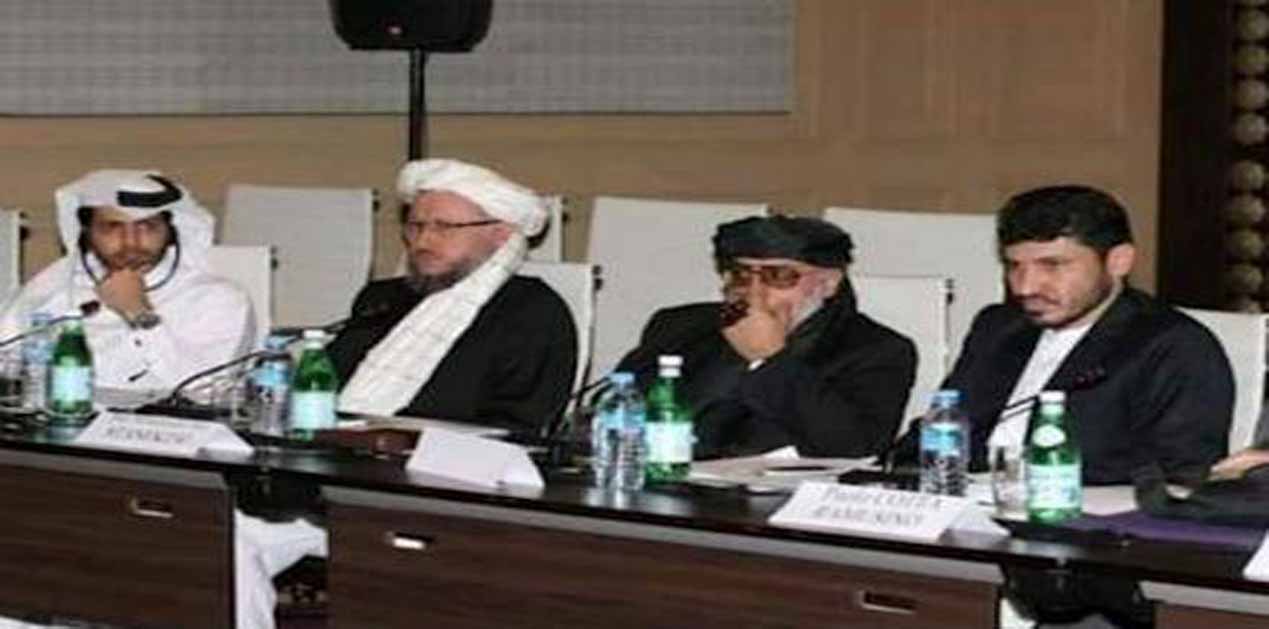The second round of intra-Afghan talks was concluded on 29 May 2019 in Moscow on the centenary of Russia-Afghanistan diplomatic relations during which the Taliban has once again refused the demand for a ceasefire.1 The courting of the Taliban in the recent times by all the major countries such as US, Russia, China, as well as other gulf and European countries has come as a harsh blow to the democratically elected government in Kabul. At the same time, it also throws a puzzle as to how a non-state actor which was considered as terrorist group till as recently as 2009 by the major powers in the world manages to isolate and nearly de-legitimize the Western-supported government in Kabul. It is also interesting to recall that the Taliban regime (1996-2001) was never able to establish relations with so many countries when they were actually ruling Afghanistan. The regime was recognized by only three countries in the entire world, namely Saudi Arabia, Pakistan, and UAE.
In its bid to create a perception of power and to de-legitimize the Ghani government, the Taliban has repeatedly refused to conduct any direct negotiations with the it. At the same time, it has also refused to accommodate itself in a participatory electoral democracy. This is despite President Ghani having unconditionally proposed to give political legitimation to the Taliban, accommodate the armed group within the power structures, and also agreed to review the constitution.2 The offer was rejected by the Taliban on the pretext that the Ghani government was a mere stooge of the US and did not have any real authority. This continuous boycott of the government in Kabul by the Taliban casts doubts over the real intention of the group whether it wants to achieve peace or maximize power in Afghanistan. By continuously refusing to talk to the elected government in Kabul, labeling it as “puppets of the West” and conducting direct negotiations with the US, the Taliban is able to isolate the ruling dispensation in the country and thereby creating a legitimacy crisis for the Ghani government domestically as well as internationally.
What has further enhanced the isolation of the Ghani government is the readiness on the part of the regional countries as well the opposition groups within Afghanistan to open dialogue with the Taliban even at the cost of surpassing the government in Kabul. The regional countries such as China, Russia have already hosted peace talks with the Taliban leadership. In fact, Iran, which proved to be a formidable foe to the Taliban by supporting Ahmed Shah Massoud led ‘Northern Alliance’ in the 1990s, opened its doors to the Afghan Taliban delegation.3 According to the recent reports, Germany, a leading donor in Afghanistan as well as the member of NATO-led coalition forces, also established diplomatic channels with the Taliban leadership in an effort to break the ice between the armed group and the government in Kabul.4
Also, the first round of intra-Afghan talks which took place in February 2019 in Moscow between the Taliban delegation and the opposition leaders from Afghanistan brought the intra-Afghan rivalry at the forefront. The talks were hailed as a success by the participants from both sides.5 It is important to note that the talks didn’t have any executive authority and the Afghan delegation comprised of opposition leaders was not officially representing the state of Afghanistan. Nevertheless, the uncompromising attitude of the Taliban, especially on the issue of the constitution, didn’t allow the two sides to achieve anything substantial beyond a joint statement. Taliban rejected the constitution of Afghanistan as an illegitimate document imposed by the Western powers. On the other hand, the Afghan delegation at the Moscow talks which was comprised of the opposition figures upheld the sanctity of the present constitution. The Afghan delegation clearly stated that the constitution is open to review and amendment but cannot be completely discarded, a view which was also endorsed by the participants of the recently concluded Loya Jirga. 6
Further, the end of the Ghani government’s official term on May 22 has deepened the intra-Afghan rivalry and enhanced the legitimacy crisis for the government within the country. The Supreme Court of Afghanistan has extended the tenure of the government till the next Presidential elections which are scheduled to be held on September 28, 2019, after being postponed twice.7 However, the Presidential candidates consider the extension of Ghani government’s term as unconstitutional and therefore they are demanding a caretaker government in order to prevent the power gap.8 The Council of Presidential Candidates, which represents 13 contenders for the Presidential post, has even threatened to begin the civil disobedience movement in Kabul to show their disapproval of the Ghani government. 9
At this crucial period, it is important for the political elite in Afghanistan to forge a common front against the Taliban during the negotiations in order to protect the gains made in the past 18 years. However, the uncompromising attitude of the opposition leaders to accept the extension given by the Supreme Court to the Ghani government will only escalate the political crisis. It is equally important that the Ghani government understands the ‘extraordinary circumstances’ in which the Supreme Court gave it the extension and thereby limits itself to fulfill the day-to-day business of the government.10 The recent appointment of seven new ambassadors and three new ministers by the government was criticized severely by the opposition leaders as “bullying and violating the laws of the country”.11 The overreach beyond the given mandate by the present government will increase the rift among the political elites and lead the country further into chaos.
It is crucial to understand that the Taliban is consistently declining the proposal of ceasefire by the Kabul government and the US, indulges in extreme violence, and refuses to hold direct negotiations with the government in Kabul. Therefore, at present, it cannot be emphasized enough that further appeasing the Taliban leadership by the Western powers will only deepen the legitimacy crisis for the Western-backed government in Kabul. India’s stance on the peace process in Afghanistan has always been supportive of the aspirations and demand of the people of Afghanistan who are craving for peace and stability. The statement by the former External Affairs Minister Sushma Swaraj at the SCO meet in May 2019 clearly emphasized that only a peace process which ensures an inclusive society along with gender and human rights is acceptable to the Indian government.12 Prime Minister Modi at the SCO summit in Bishkek in June 2019 again reiterated India’s commitment towards people of Afghanistan when he assured President Ghani that “India will fulfill all the expectations of people of Afghanistan in the path of legitimate government chosen through the democratic path.”13 What India can further do at this moment is to use its good offices to forge some kind of consensus among the divided political elites in Afghanistan. As the largest democracy, the priority for India is to ensure that the demands of the people in Afghanistan don’t go unheard in the midst of power politics.
References
- Moscow Talks: Taliban Rejects Calls For Ceasefire, 29 May 2019, TOLO News, URL: https://www.tolonews.com/afghanistan/moscow-talks-taliban-rejects-calls-ceasefire
- Afghan leader's offer to Taliban is a last-ditch gamble for peace, 28 February, The Guardian, URL: https://www.theguardian.com/world/2018/feb/28/afghan-president-ashraf-ghani-offers-to-recognise-taliban-to-end-war
- Afghan Taliban delegation holds meeting with Iran deputy FM in Tehran, 31 December 2018, Iranian
Students’ News Agency, URL: https://en.isna.ir/news/97101005254/Afghan-Taliban-delegation-holds-meeting-with-Iran-deputy-FM-in - Germany in push to resurrect Afghan talks with Taliban, 26 May 2019, Reuters, URL:
https://www.reuters.com/article/us-afghanistan-germany-taliban/germany-in-push-to-resurrect-afghan-talks-with-taliban-idUSKCN1SW0C9 - Delegates Say Moscow Talks Were A Success, 7 February 2019, TOLO News, URL: https://www.tolonews.com/afghanistan/delegates-say-moscow-talks-were-success
- Andrew Higgins and Mujib Mashal, “In Moscow, Afghan Peace Talks Without the Afghan Government”, 4 February 2019, The New York Times, URL: https://www.nytimes.com/2019/02/04/world/asia/afghanistan-taliban-russia-talks-russia.html, Also see, Peace Jirga Delegates Issue Resolution; Stress On Ceasefire, 3 May 2019, TOLO News, URL: https://www.tolonews.com/afghanistan/peace-jirga-delegates-issue-resolution-stress-ceasefire
- Supreme Court Extends President Ghani’s Tenure, 21 April 2019, TOLO News, URL: https://www.tolonews.com/afghanistan/supreme-court-extends-president-ghani%E2%80%99s-tenure
- Massoud Ansar, Rival Candidates Accuse Ghani Of ‘Law Violation, Bullying’, 26 May 2019, TOLO News, URL:https://www.tolonews.com/afghanistan/rival-candidates-accuse-ghani-%E2%80%98law-violation-bullying%E2%80%99
- Candidates Warn Of Civil Disobedience Against Govt, 22 May 2019, TOLO News, URL: https://www.tolonews.com/afghanistan/candidates-warn-civil-disobedience-against-govt
- NUG’s Term Has Ended, But US Respects Court Extension: Envoy, 29 May 2019, TOLO News, URL: https://www.tolonews.com/afghanistan/nug%E2%80%99s-term-has-ended-us-respects-court-extension-envoy
- Abdullah Not Aware Of Recent Cabinet Appointments, 27 May 2019, TOLO News, URL: https://www.tolonews.com/afghanistan/abdullah-not-aware-recent-cabinet-appointments
- Ministry of External Affairs, India , 22 May 2019, URL: https://mea.gov.in/Speeches-Statements.htm?dtl/31331/Speech+by+External+Affairs+Minister+at+the+Meeting+of+Shanghai+Cooperation+Organization+Council+of+Foreign+Ministers
- Will back legitimate govt chosen through democratic path: PM Modi tells Afghan President, Zee News, 14 June 2019, URL: https://zeenews.india.com/india/will-back-legitimate-govt-chosen-through-democratic-path-pm-modi-tells-afghan-president-2211416.html
Image Source: https://www.tolonews.com/sites/default/files/styles/principal_article_image/public/Peace_37.jpg?itok=Nlzwfqbi











Post new comment